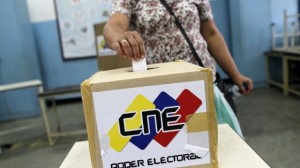EspañolSalvador Sánchez Cerén, who was a guerrilla in the 1980s, has just won the second round of presidential elections in El Salvador by a meager margin: 50.1 percent of the votes versus his opponent from the ARENA party, Norman Quijano, who got 49.9 percent of the vote. This means that in more than 3 million votes, the total difference in favor of the Marxist Sánchez Cerén was approximately 6,000. Such a margin lends itself to all kinds of doubts, causing ARENA to denounce irregularities that apparently favored the incumbent.
The Supreme Electoral Tribunal, however, declared the result valid, and the former guerrilla will be the next president of the Central American country. Sánchez was conciliatory in his first statements, oblivious to the revolutionary discourse of the past, which probably means his presidency will be more like Uruguay’s Mujica or Brazil’s Rousseff — a moderate Marxist regime that won’t resemble that of Maduro or Chavismo in Venezuela. This is good news for Salvadorans, of course, but not the point one wishes to highlight in this article.
The reason for concern is that for a difference that doesn’t reach two 10ths of 1 percent — two individuals out of each 1,000 voters — a country in Latin America can set off an irreversible process as the one Venezuela is going through, which has led that nation to reach alarming levels of poverty and violence. It is worth remembering that Hugo Chávez won the presidency with 56 percent of the vote, a significant proportion, no doubt, but from which he easily managed to create the system of oppression that Venezuelans suffer under today.

It thus seems valid to ask: what about the other 44 percent? The 3 million votes that the opposition received were left with almost no representation whatsoever, politically cornered since 1999. Democracy, as conceived in our lands, means that whomever gets one more vote than his opponent “takes it all” and acquires a power which, if desired, becomes absolute.
Perhaps it will seem to some readers that I exaggerate by generalizing from a single case whose development has been, so to speak, quite particular. But that’s the argument used by presidents of the region to boost and justify the repressive regime of Nicolás Maduro: they refer to the “legitimacy of origin,” as if by winning an election the people in power have license to do whatever they wish.
A typical example of this way of conceiving democracy is that of President Bachelet, who seems to forget about human rights when governments are of the collectivist left. The same goes for Argentina’s president, who didn’t protest when the riots of late 2001 forced President De la Rúa to resign, but now justifies the repressive abuses of her Venezuelan colleague.
The list is long, and it is not my intention to abuse the reader’s patience, but it is easy to see that there is an obscure double standard at play when someone mercilessly criticizes dictators who fought subversion, but then — for example — defends and legitimizes the “communist monarchy” of the Castro brothers in Cuba.
Voting, ultimately, is nothing more than a quantitative method to solve the differences that inevitably arise in a society. People make use of this simple method for deciding who should rule in a democracy, preventing violent confrontations in most cases. But it tells us nothing about how they will rule, about the limits to political power, the institutions guaranteeing civil liberties, or the relationship between the rulers and the ruled.
Without all this, without institutions to avoid the concentration of power, democracy becomes a trap that can yield almost any result: from the freedom and stability of the Nordic countries, up to the terrible examples of Hitler, and a long list of Latin-American petty tyrants.
Those who uncritically accept everything rulers do for the simple fact of having won an election, as in the case of Venezuela today, end up legitimizing any brutal dictatorship. Whoever calls to intervene, as the OAS does, in complex cases such as those of the recent past in Honduras and Paraguay, but refrains from taking sides against Venezuelan paramilitary violence, loses all moral legitimacy and becomes a parody of a regional body — a theater where governments of all kinds support each other.
Our America is in really bad shape if it can’t respond, clearly and forcefully, to a situation like Venezuela’s, which could quickly degenerate into a civil war.
 Versión Español
Versión Español












